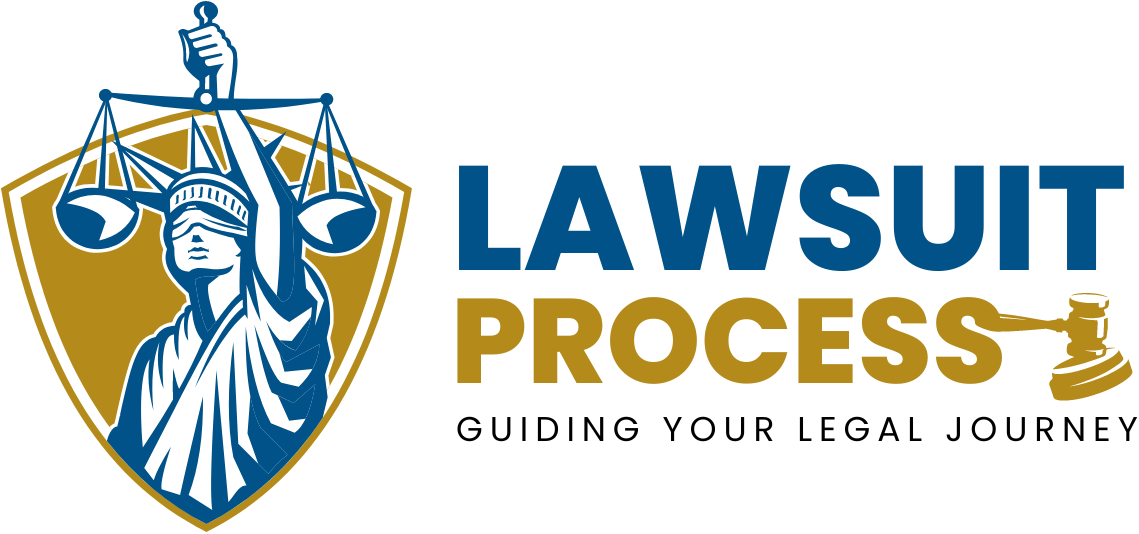Deportation, formally known as removal, is the process by which the U.S. government orders a non-citizen to leave the country. These removal orders can be a frightening prospect for individuals and their families, often resulting in permanent separation from loved ones and communities. However, deportation orders are not always final. Individuals facing deportation have the right to challenge these orders through legal proceedings. This article provides a comprehensive guide to the lawsuit process involved in challenging deportation orders in the United States.
Understanding Deportation and Removal Proceedings
The deportation process in the U.S. begins with removal proceedings in immigration court. The Department of Homeland Security (DHS) initiates these proceedings when they believe a person is unlawfully present in the country or has violated immigration laws. The individual is served with a Notice to Appear (NTA), which outlines the grounds for their removal.
During removal proceedings, an immigration judge reviews the case, hears arguments from both the government and the individual, and ultimately determines whether the person should be deported. If the judge issues a deportation order, it doesn’t necessarily mark the end of the road. The individual can appeal this decision, first within the immigration system and then, if necessary, through federal courts.
Grounds for Deportation in the U.S.
There are several reasons why the U.S. government may seek to deport someone. Some common grounds for deportation include:
- Violating visa conditions: Overstaying a visa or working without proper authorization can lead to deportation.
- Criminal activity: Committing certain crimes, including drug offenses, domestic violence, or aggravated felonies, can make a non-citizen deportable.
- Illegal entry or presence: Individuals who enter the U.S. without inspection or those who remain in the country without valid legal status can be subject to removal.
- Fraud or misrepresentation: Providing false information on an immigration application or committing fraud to obtain immigration benefits can result in deportation.
Understanding the grounds for deportation is critical when mounting a defense. Each case is unique, and the specific circumstances surrounding the individual’s entry and stay in the U.S. will play a crucial role in determining the most effective legal strategy.
Options for Challenging a Deportation Order
Once a deportation order is issued, the individual has several legal options to challenge it. Each option comes with its own procedures, eligibility criteria, and timelines. Here are the most common ways to contest a deportation order:
1. Appeal to the Board of Immigration Appeals (BIA)
The first step in challenging a deportation order is to file an appeal with the Board of Immigration Appeals (BIA). The BIA is the highest administrative body responsible for interpreting and applying U.S. immigration law. If an immigration judge orders deportation, the individual has 30 days to file a Notice of Appeal (Form EOIR-26) with the BIA.
During the appeal, the BIA reviews the record of the removal proceedings and determines whether the immigration judge made any legal errors. If the BIA agrees that mistakes were made, it can reverse or remand the deportation order for further proceedings.
It’s important to note that BIA appeals focus primarily on legal issues, not new evidence. Therefore, it’s critical to present all necessary evidence during the original immigration court hearing.
2. Motion to Reopen or Reconsider
If new evidence comes to light after the deportation order is issued, or if there is reason to believe the immigration judge made a significant error, the individual can file a motion to reopen or reconsider the case.
A motion to reopen is based on new facts that were not available at the time of the original hearing. For example, if an individual is able to obtain new evidence proving they are eligible for asylum or a family-based visa, they can request that the case be reopened.
A motion to reconsider, on the other hand, is based on the argument that the judge made an error in applying the law. The motion must outline the legal mistake and request a review of the decision.
Motions to reopen or reconsider must typically be filed within 90 days of the deportation order, although there are exceptions for certain circumstances, such as cases involving fraud or persecution claims.
3. Stay of Removal
While appealing a deportation order, it’s crucial to prevent immediate removal from the U.S. One way to do this is by requesting a stay of removal. A stay of removal temporarily halts deportation while the appeal or motion is being considered.
To obtain a stay of removal, the individual must file a separate request with either the BIA or the court hearing the case. It is important to note that filing an appeal or motion does not automatically stop deportation—an explicit stay of removal must be granted.
4. Petition for Review in Federal Court
If the BIA denies the appeal, the next option is to file a petition for review with the federal courts. U.S. Circuit Courts of Appeals have the authority to review decisions made by the BIA and immigration courts.
Filing a petition for review involves challenging the BIA’s decision based on legal errors or constitutional violations. Federal courts have more expansive powers than the BIA and can overturn removal orders based on issues like due process violations or misinterpretation of the law.
It’s important to note that a petition for review must be filed within 30 days of the BIA’s decision. The process is highly complex and requires legal expertise in both immigration and federal law.
5. Asylum and Withholding of Removal
In certain cases, individuals facing deportation may be eligible for asylum or withholding of removal. Asylum is granted to individuals who can demonstrate a well-founded fear of persecution in their home country based on race, religion, nationality, political opinion, or membership in a particular social group.
If granted asylum, the deportation order is canceled, and the individual is allowed to remain in the U.S. with the opportunity to eventually apply for a green card.
Withholding of removal is similar to asylum but has a higher standard of proof. It is granted if the individual can prove that they are more likely than not to face persecution if deported. While withholding of removal does not lead to a green card, it allows the person to remain in the U.S. without being deported.
Critical Challenges in the Deportation Lawsuit Process
Challenging a deportation order can be a daunting and complex legal process, filled with numerous hurdles. Some of the most critical challenges include:
- Timely filing: Many legal remedies have strict filing deadlines. Missing these deadlines, such as the 30-day window to appeal to the BIA or federal court, can result in losing the opportunity to challenge the deportation order.
- Gathering evidence: Building a strong case requires gathering compelling evidence to prove eligibility for relief from deportation. This often includes documents, witness statements, and expert testimony.
- Legal complexity: Immigration law is a highly specialized field, and navigating the lawsuit process requires a deep understanding of both immigration and constitutional law.
- Language barriers: Non-English-speaking individuals often face language barriers that can make it difficult to understand legal proceedings and properly defend themselves.
- Access to legal representation: Legal representation is not guaranteed in immigration court, unlike in criminal cases. Many individuals facing deportation cannot afford an attorney, and self-representation can be overwhelming.
The Importance of Legal Representation
Given the complexity of the deportation lawsuit process, having skilled legal representation is crucial. Immigration lawyers can help individuals understand their rights, navigate the legal system, and build a strong defense against deportation.
Experienced attorneys can identify potential legal errors in the deportation process, file motions and appeals, and present compelling arguments to the court. They can also assist in gathering necessary evidence, preparing witnesses, and ensuring all deadlines are met.
For individuals unable to afford private legal representation, there are organizations that provide free or low-cost legal services to immigrants. These organizations include nonprofit groups like the American Immigration Council, Catholic Charities, and the National Immigration Law Center.
Conclusion
Challenging a deportation order in the United States is a complex legal process that requires a thorough understanding of immigration law and careful attention to detail. From filing appeals with the Board of Immigration Appeals to seeking judicial review in federal court, individuals facing deportation have several options for contesting their removal. However, the process is fraught with challenges, including tight deadlines, the need for strong evidence, and the complexities of immigration law.
Securing the assistance of a skilled immigration lawyer can greatly increase the chances of success in a deportation lawsuit. For those facing deportation, understanding the legal process, acting quickly, and seeking proper legal counsel are the best ways to defend against removal and protect their rights.
Although the road to challenging a deportation order is difficult, it is not impossible. With the right legal strategy, many individuals have successfully fought deportation and won the right to remain in the U.S. The key is to stay informed, be proactive, and seek expert legal assistance as early as possible.










